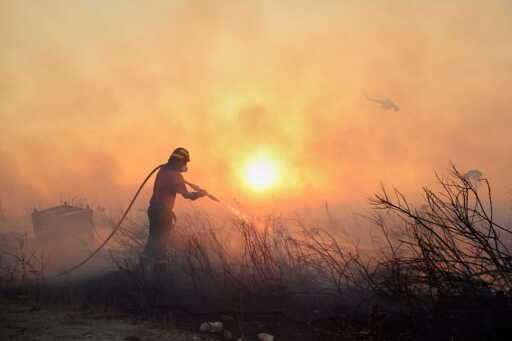Hundreds of wildfires across Europe have burned at least 1 million hectares, or around 2.5 million acres, since the start of the year. That’s made 2025 the worst year for the continent since official wildfire records began in 2006. In Türkiye, Greece and Cyprus, which saw deadly fires peaking since June, weather conditions that drove the spread of wildfires were made 22% more intense due to climate change, a rapid analysis has found. World Weather Attribution, a global network of scientists who study extreme weather events, said in its latest analysis that the combination of hot, dry and windy conditions in the eastern Mediterranean was also made 10 times more likely in today’s climate, which has warmed by 1.3° Celsius (2.3° Fahrenheit) since pre-industrial times because of human-induced greenhouse gas emissions. In the absence of climate change, such extreme wildfire-triggering weather conditions would have happened once every 100 years compared to once every 10 years now. Between June and July, the eastern Mediterranean faced record-breaking heat waves, and several days of temperatures above 40°C (104°F). Total rainfall during winter months also saw a 14% decline, and the dry heat made it easier for plants to burn while extremely strong northerly winds, called Etesian winds, fanned more fires. In Türkiye, more than 50,000 people were evacuated as wildfires spread in both rural and urban communities this year. At least 17 people were killed, including 10 firefighters and rescue workers. More than 32,000 people were also evacuated from Greece as wildfires razed…This article was originally published on Mongabay
From Conservation news via this RSS feed


